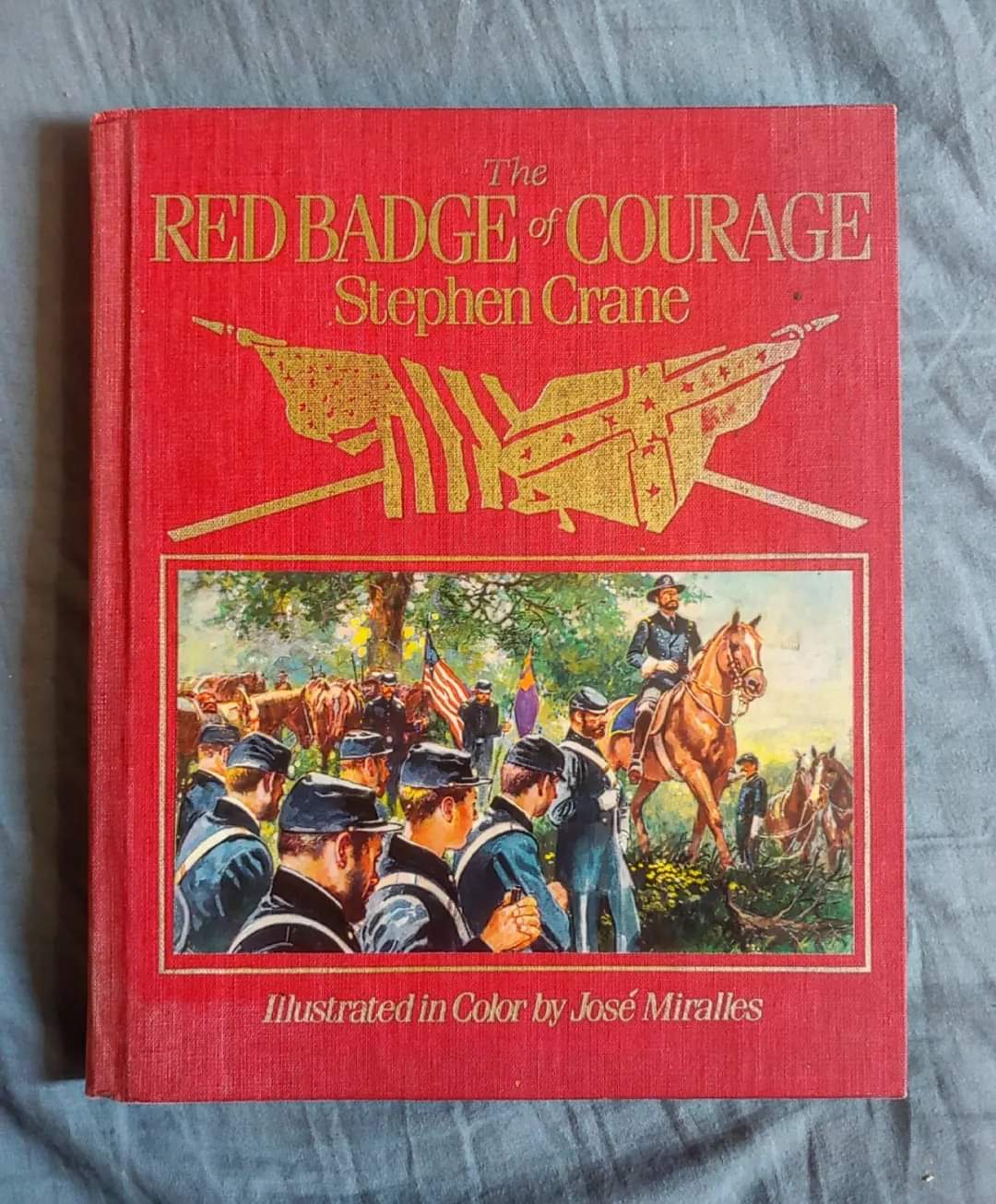
While visiting a Little Library one day, I stumbled upon this absolutely gorgeous 1980s hardcover book of The Red Badge of Courage. Which is ironic because funnily enough, I had actually been wanting to read this novel due to a mention of it in another book I just read! 😂 Fate is a curious thing...
This edition also features colored illustrations, which I am going to include because they are also incredibly gorgeous. Anyway please enjoy my synopsis! 🙏
Our story unfolds upon a young soldier named Henry, or more simply, "the youth." He has enlisted in the Civil War and is anxiously waiting for battle to begin.
While waiting, he recollects his final moments before having left home... Henry had originally enlisted under the impression that he would encounter great battles, and be regarded as a hero.
His mother's reaction wasn't what he had expected though. She disagreed with her son's dream, but eventually accepted the idea of him going off to war.
"Still, when he had looked back from the gate, he had seen his mother kneeling among the potato parings. Her brown face, upraised, was stained with tears, and her spare form was quivering. He bowed his head and went on, feeling suddenly ashamed of his purposes."
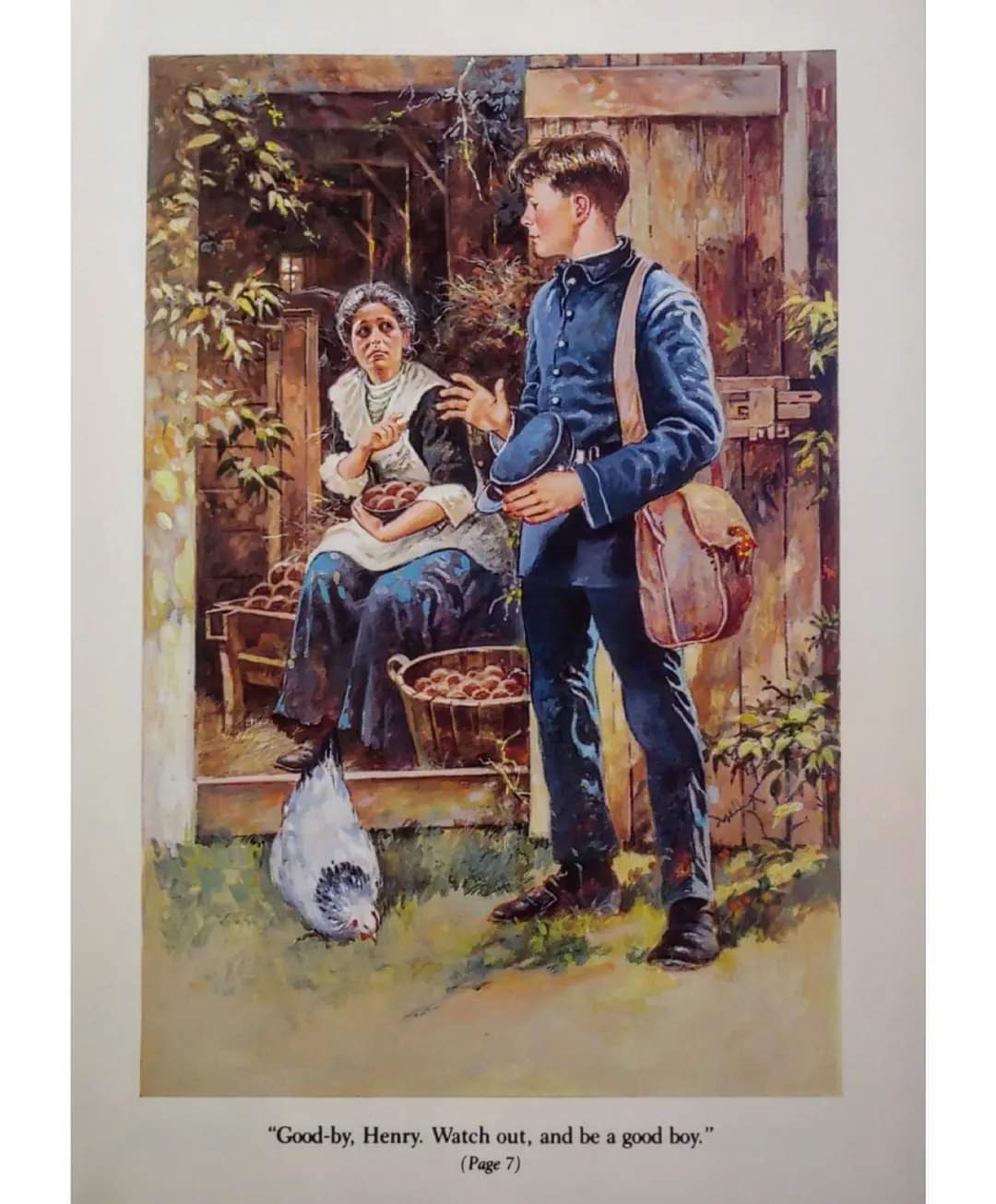
It hadn't all been terrible however. Henry had especially enjoyed their trip to Washington, where the public showered their regiment with adoration and food. But life quickly becomes quite dull after that...
"After complicated journeyings with many pauses, there had come months of monotonous life in a camp. He had had the belief that real war was a series of death struggles with small time in between for sleep and meals; but since his regiment had come to the field, the army had done little but sit still and try to keep warm."
An unforeseen circumstance also arises. The youth begins to struggle internally with a very heavy issue: he does not know what kind of person he will be in the face of war.
"It suddenly appeared to him that perhaps in a battle he might run. He was forced to admit that as far as war was concerned he knew nothing of himself."
This bothers Henry greatly, because despite the fact he is dealing with this question that weighs heavily on his mind, all of the other soldiers seem undisturbed. In fact, many of them are in high spirits!
"The youth, considering himself as separated from the others, was saddened by the blithe and merry speeches that went from rank to rank. ... The regiment tramped to the tune of laughter."
He tries asking his fellow soldiers what they will do when battle arrives, if they will take off and run, but every man seems adamant that he will fight his fair share.
"He felt alone in space... His failure to discover any mite of resemblance in their viewpoints made him more miserable than before. No one seemed to be wrestling with such a terrific personal problem. He was a mental outcast."
Until the day finally arrives, when Henry is awakened to discover their regiment will be going into battle. As the two opposing forces slowly march onto the field, Henry is possessed by such blinding fear as reality finally starts to sink in. They are pigs being sent to slaughter.
"Once he thought he had concluded that it would be better to get killed directly and end his troubles. ... He would die; he would go someplace where he would be understood. It was useless to expect appreciation of his profound and fine senses from such men as the lieutenant."
But then it ensues. Shells explode on the ground, sending twigs and earth flying. Soldiers are shot left and right. Men scamper in all directions, like deer in headlights. The battle thickens as smoke fills the field, suffocating everyone. Men drop like flies.
Then the fighting abruptly ceases. Henry's regiment cheers that they've managed to hold the enemy back! There is a sense of pride in their small victory, an almost cocky attitude to the soldiers. A small victory indeed, for not long after, there is a cry that the enemy is returning. Henry panics and runs away.
"After a time the sound of musketry grew faint and the cannon boomed in the distance. ... A bird flew on lighthearted wing."
"Off was the rumble of death. It seemed now that Nature had no ears."
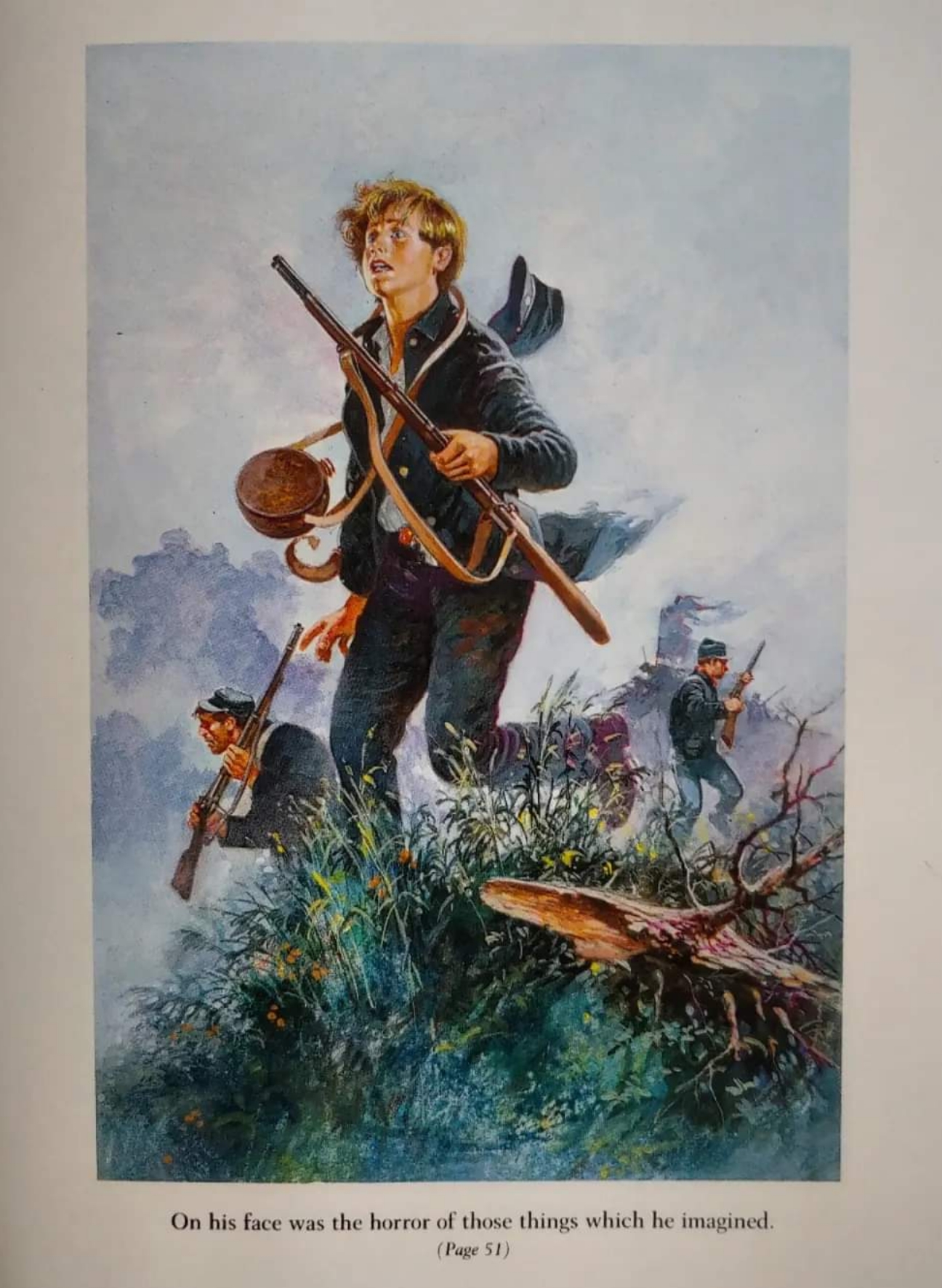
When their side has won for good, Henry tries walking back to rejoin his regiment, full of shame. Once again he battles with his mind, desperately trying to justify his abandonment. He goes so far as to blame his fellow soldiers for staying behind to fight, that they were the foolish ones and he was a genius!
Young Henry eventually stumbles upon another regiment from his army and he silently sneaks in with them. One of the soldiers with a terrible wound to the head attempts to talk to Henry about the fight, asks him where he got hit, and Henry anxiously scurries away from his questions.
"At times he regarded the wounded soldiers in an envious way. He conceived persons with torn bodies to be peculiarly happy.
He wished that he, too, had a wound, a red badge of courage."
That's right; poor, unharmed, unsatisfied Henry now begins to look at the injured soldiers with envy. He abandons an injured soldier, pretty much for death. He even witnesses one of his fellow men collapse and die right in front of him, but it does little to change Henry's mind.
"He now thought that he wished he was dead. He believed that he envied those men whose bodies lay strewn over the grass of the fields and on the fallen leaves of the forest."
Henry starts to travel and search for his original regiment. He witnesses other regiments fighting along the way, soldiers fighting with purpose, and this time Henry's mind turns to thoughts of shame again. He begins to regard those men as heros.
Henry again wishes that he had suffered death instead of these intolerable thoughts. He realizes that he cannot return to his regiment without the men viewing him as a coward. Henry almost wishes that their army would suffer defeat, just so he can have an excuse for fleeing!
He comes across another battle, and with it horror-striken men. One of them is acting in an insane manner, and when Henry attempts to confront him, the man bashes him in the head with his rifle!
Finally Henry encounters his own regiment once again, and being the worm that he is, Henry states that his wounded head was from the result of a bullet. He has managed to slip back into the ranks without question from his fellow soldiers.
It is now that Henry has some time to himself, to sift through his thoughts. He feels confident, a "man of experience."
"There was a little flower of confidence growing within him. He was now a man of experience. He had been out among the dragons, and he assured himself that they were not so hideous as he had imagined them. ...
And furthermore, how could they kill him who was chosen of gods and doomed for greatness?"
Henry once again begins to think himself superior to the other soldiers who had also fled from battle... despite the fact he had done exactly the same thing!
"He remembered how some of the men had run from the battle. As he recalled their terror-struck faces he felt a scorn for them. ... They were weak mortals. As for himself, he had fled with discretion and dignity."
Later on, Henry overhears two generals talking, that they will soon be sent to battle again. It is an intense fight, but during the thick of all of it, Henry and his friend manage to acquire a war flag from an enemy soldier's corpse. Until finally the enemy's side starts to wane away; Henry's regiment has been victorious!
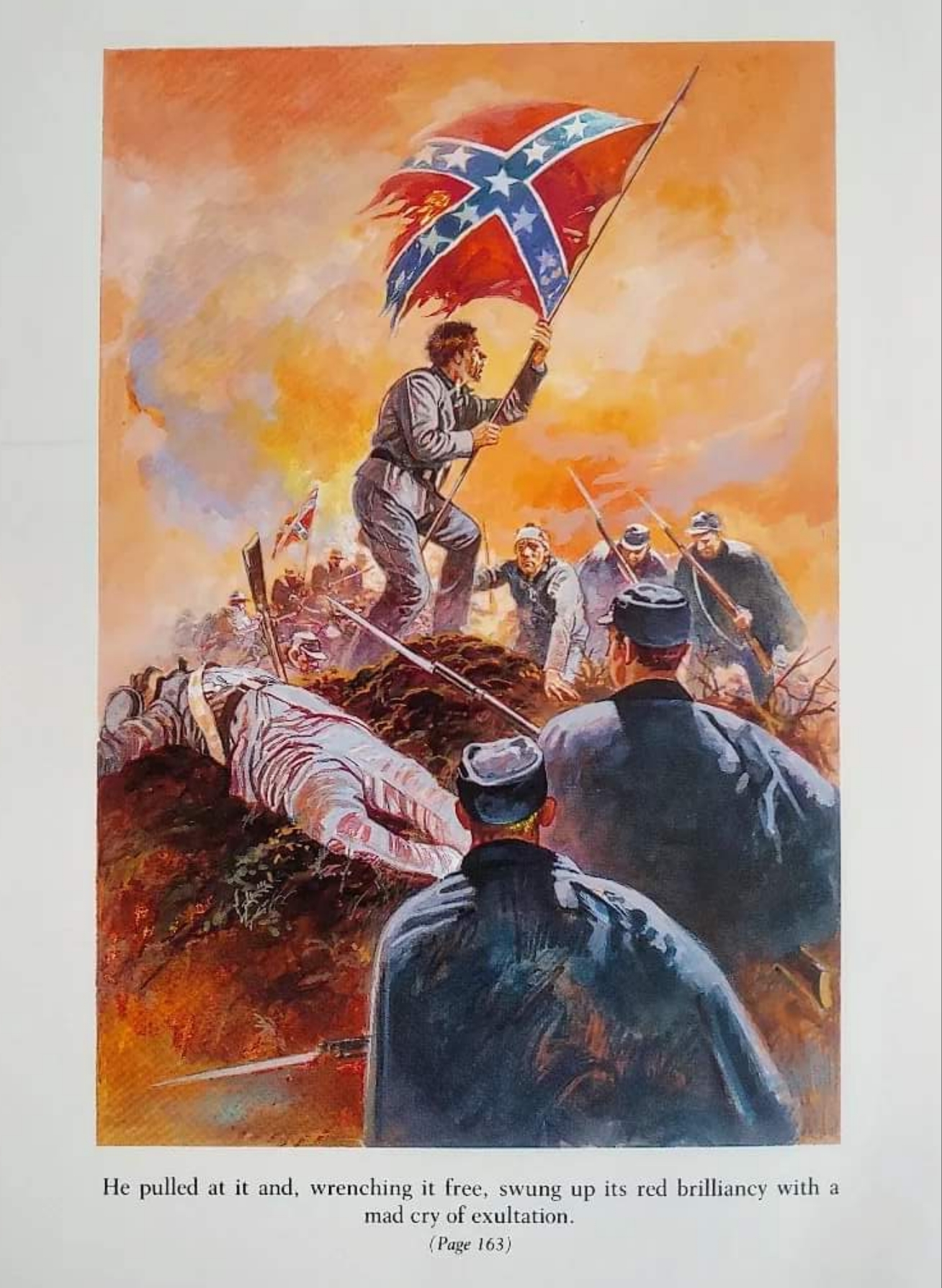
"The impetus of enthusiasm was theirs again. They gazed about them with looks of uplifted pride, feeling new trust in the grim, always confident weapons in their hands. And they were men."
As their regiment starts to walk home, Henry finds that he has not fully escaped the sins of his past...
"For a time this pursuing recollection of the tattered soldier took all elation from Henry's veins. He saw his vivid error, and he was afraid that it would stand before him all his life."
But in the end Henry manages to just "shake off" the horror he committed, and carries on as though nothing happened. He focuses instead on his life back at home.
"Yet gradually he mustered force to put the sin at a distance. And at last his eyes seemed to open to some new ways. ... He had been to touch the great death, and found that, after all, it was but the great death. He was a man."
My review... I absolutely detested Henry 😅 By the tenth chapter I was already wishing he would die LOL
I do not know if it was the author's intention, given that Henry is "the youth," and adolescents/young adults rarely have coherent thoughts or assurance in their identities. But Henry is a flip-flopping narcissistic lil' beyotch! 🥴
To go from "I won't run in the face of battle! ✊"
to
"Oh shit, I'm running! 😨"
to
"I can't believe I left my fellow man behind ☹️"
to
"No, you know what, screw that -- they were the pussies, not me! 😠"
to
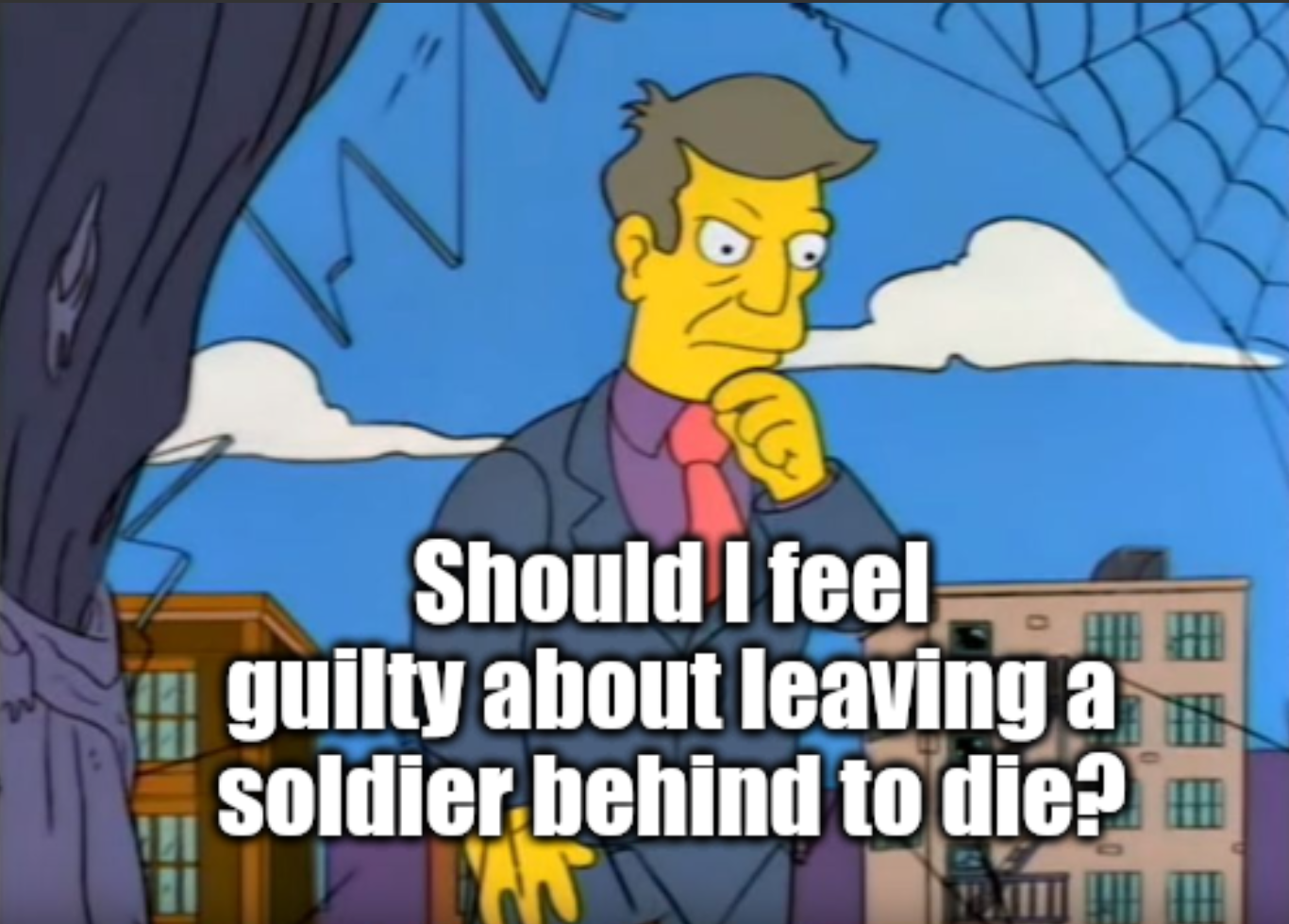
to
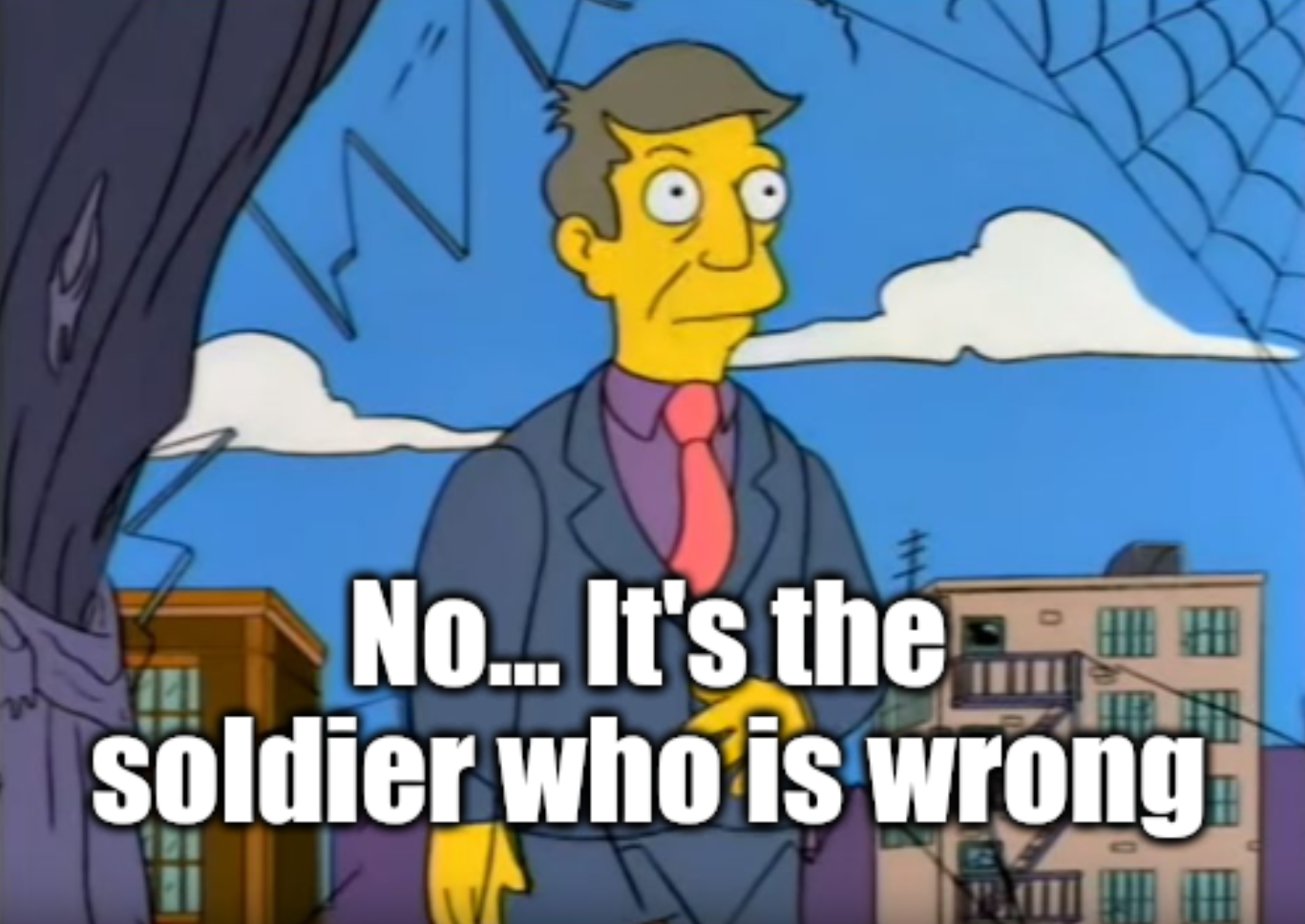
Like, how hard is it to have a single thought and follow through with it? Again, giving Henry the "benefit of the doubt" and that he's just an impulsive youth -- but then how the hell can someone despise themselves so much that they're willing to burden fighting soldiers -- dead soldiers -- for one's own incompetence? The hoops that Henry had to go through in order to justify himself as a "man," all the while forgetting that he literally left a soldier to die due to Henry's inability to deal with his own guilt.
Aside from Henry's character, I really enjoyed the way that this story was written. So many war stories choose to focus on the gore and horrors of war -- and rightfully so! So I did enjoy that this novel chose to focus on the inner turmoil that comes with war.
"Will I run from battle? Will I fight with my fellow soldiers? Will I become a man after this?"
Obviously Henry went through a bit more "turmoil" than necessary, because he ran like a lil' beyotch in the first place then compensated by blaming everyone else for his failure 😅 But we have to take into account that for as much as we may regard veterans, we can guarantee a couple of Henrys made it home the same way. Fled, hardly ever battled, were able to survive thanks to the soldiers who did willingly sacrifice themselves, and went home believing themselves the "superior" ones.